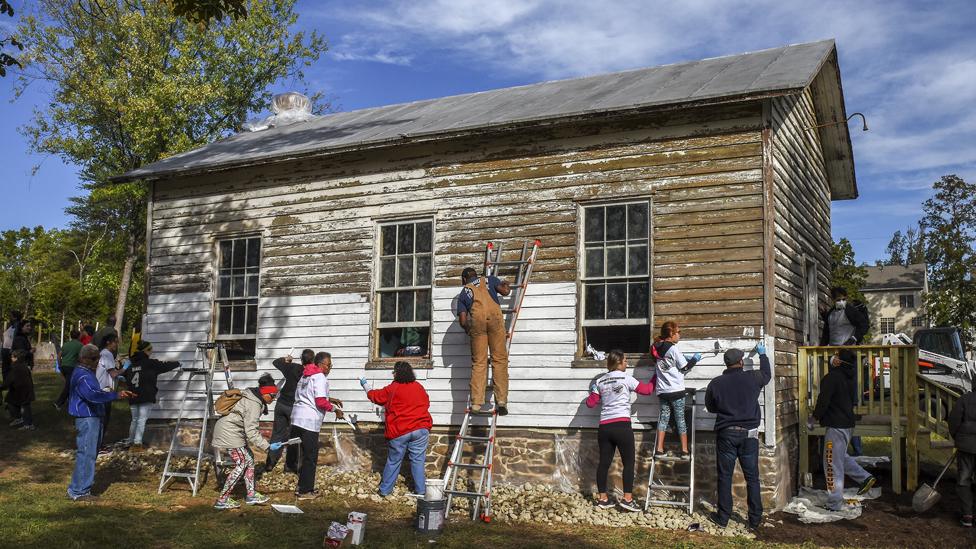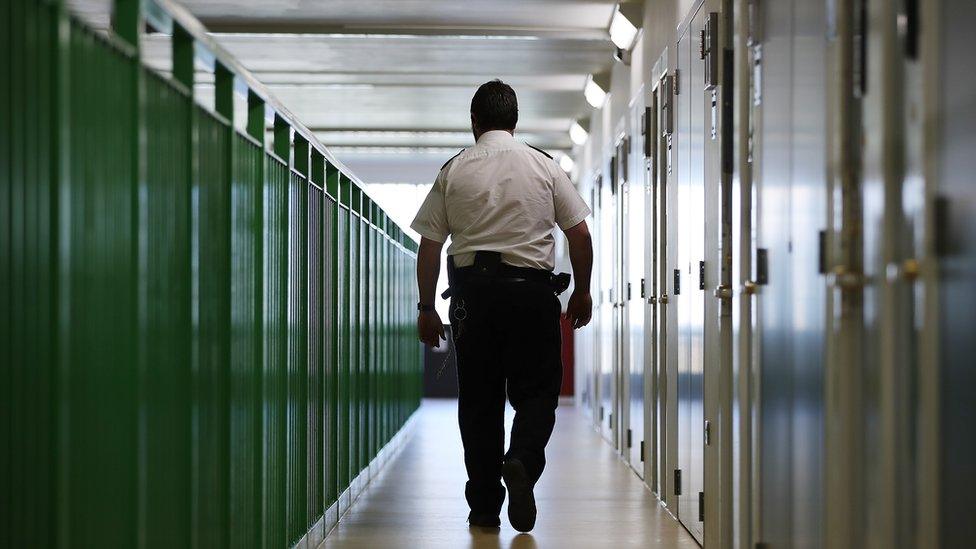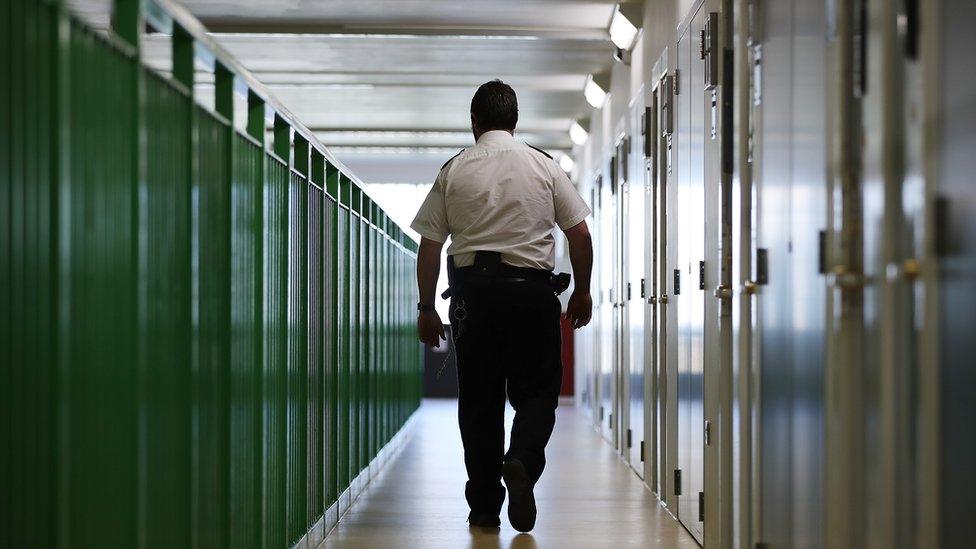'High workloads' affect probation officers in Wales
- Published

Staff shortages means some probation officers in Wales face unacceptably high workloads, the chief inspector of the service has said.
The National Probation Service in Wales said it was taking action, including recruiting staff to fill vacancies, which stand at over 20%.
Dame Glenys Stacey's report also found dynamic leaders and enthusiastic staff.
The supervision of nearly 7,000 high-risk offenders in Wales was done well - with some outstanding work.
Overall, the service was assessed as good - the second highest rating - with case handling in one respect deemed "outstanding".
Probation work in Wales is split between a national service overseeing high-risk offenders and a private Community Rehabilitation Company (CRC) which oversees low and medium-risk offenders.
It is the work of the privatised probation service which has repeatedly been criticised and earlier this year Working Links went into administration, handing over the responsibility to Seetec.
In her assessment of the national service, run by the Ministry of Justice, Dame Glenys said NPS Wales staff held leaders in high regard.
"Effective systems are in place to monitor and improve performance and the process of learning lessons from case reviews, audits and complaints was effective."

Dame Glenys Stacey found almost half of probation officers felt they had workloads that were too high
But her report found:
There were 235 probation officers against a target of 298
Vacancies for other grades of staff are not as acute but unfilled vacancies affect the workload of existing staff
More than a quarter of responsible officers described their workload as unmanageable
Some victim liaison officers have more than 240 active cases, described as "plainly unmanageable"
52% of staff said they had an acceptable workload
Despite shortages and high caseloads for some, overall morale was high and sickness levels low.
Among the shortfalls were "extremely lengthy delays" before individuals could start offending behaviour programmes, which was called "plainly unacceptable".
Inspectors found long waiting lists to get onto Horizon, a nationally accredited group programme designed for medium-risk male sex offenders.
Amy Rees, director general of Probation in Wales, said the report "rightly recognised" the service was performing well.
She added: "This is a very positive report, but we will take note of the issues raised by the inspectorate and we are already taking action to improve the service, including training new probation officers to increase the numbers in Wales by nearly 20% over the next year."
- Published16 April 2019

- Published28 March 2019

- Published17 February 2019

- Published27 July 2018
